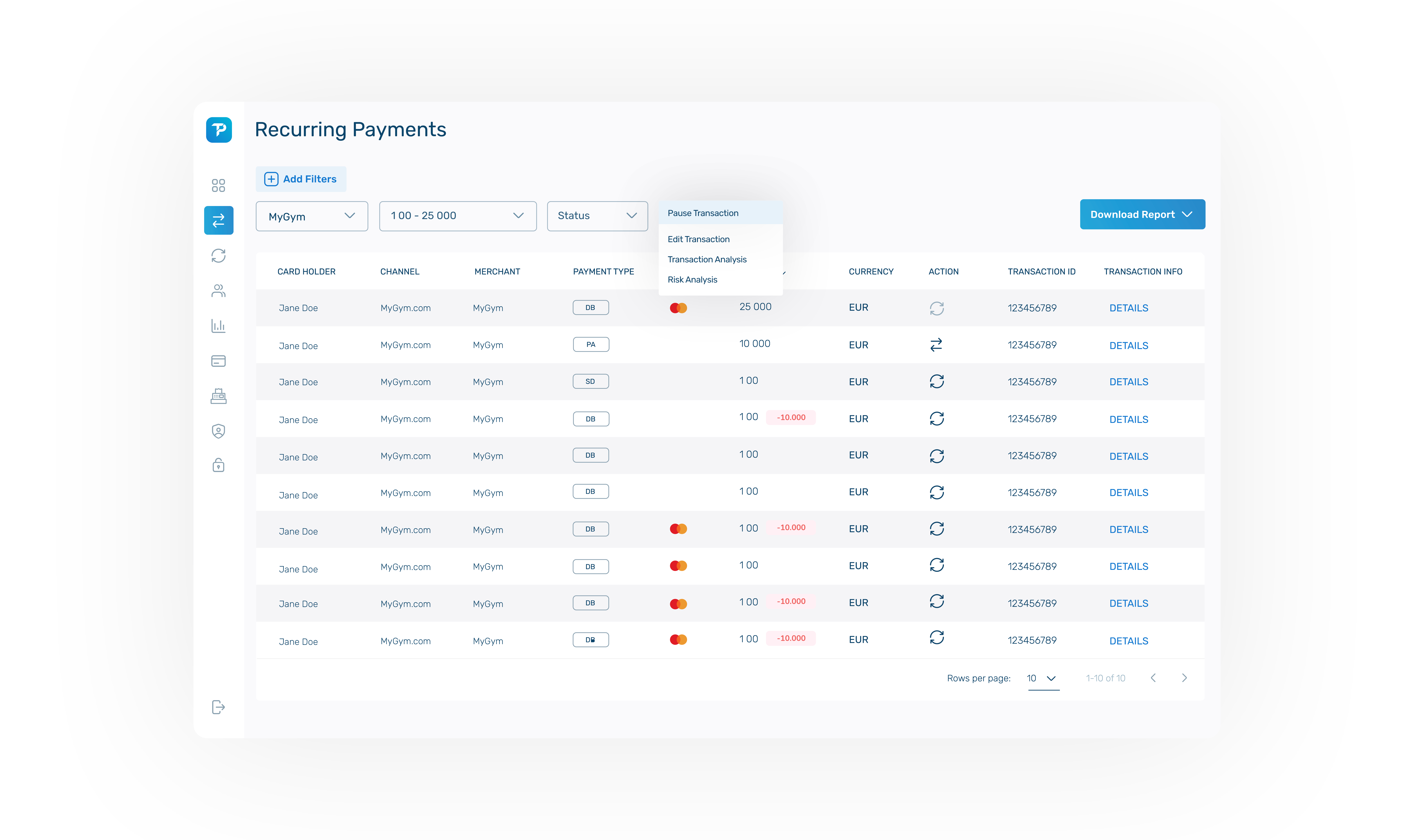
As a merchant, who doesn’t like recurring revenue? Nobody, right? That’s exactly what recurring payments and Direct Debits can provide for you when optimised to their full potential. If they’re not optimised, you could be missing out on a lot of revenue. In fact, the average retention rate for a business taking recurring card payments sits at an unsatisfactory 40-45%, so it’s important you take the time to understand both forms of payment and how to ensure a smooth customer experience.
But what’s the difference between them both?
Let’s take a look at recurring card payments vs Direct Debits to see which is more suitable for your business model.
What's in this article?
Before we delve into the differences, let’s quickly answer the questions: What is a recurring payment and what is a Direct Debit?
A recurring card payment (also known as a Continuous Payment Authority (CPA)) is when a customer makes a continuous payment to a company by providing them with their card details. The customer gives their permission for money to be taken from their account at set intervals, such as weekly or monthly.
They’re often used for subscriptions like Netflix, memberships such as the gym or even utility bills.
A Direct Debit can be a recurring transaction or a one-off payment. The customer will provide their bank account details to the company and will authorise the payments to be taken directly from their account. Direct Debits are often used for larger payments, such as rent or mortgage payments, as well as utility bills.
As you can see, recurring card payments and Direct Debits are very similar forms of payment. So similar, it can be confusing to distinguish between the two. They both require the customer to authorise the payment and the funds are taken on a set schedule. What they’re used for can cross over too.
So, what is the difference?
How recurring payments work differs from Direct Debits when it comes to the way the customer authorises the payments. For a Direct Debit, the customer must complete a Direct Debit mandate form providing their bank details, granting the business permission to take funds from their bank account.
The way a recurring payment works is the customer will provide their card details, either debit or credit card, granting permission for the funds to be taken from their chosen card.
Recurring payments are usually much quicker than a Direct Debit. They can be processed immediately or on the next working day. Direct Debits, on the other hand, can take several days for the funds to clear. So, if a payment needs fast clearance, setting up a recurring card payment would be the ideal option.
Since the payments are set up in different ways and the funds are taken differently, it’s no surprise that how to cancel the payments differ too. Direct Debits need to be cancelled via the bank and recurring payments need to be cancelled via the card issuer or organisation they are set up with.
Recurring card payments are far more flexible than Direct Debits. With recurring payments, the schedule can easily be amended or paused in an instance, as well as provide price variations, making them much more customisable. Whereas with Direct Debits, although making amendments is possible, advance notice needs to be given by both the consumer and the business.

For the customer, Direct Debits can be more secure due to the Direct Debit Guarantee. If money is taken by mistake, the bank usually has the responsibility to pay the refund. They will refund the payee and then raise an indemnity claim against the company, known as a Direct Debit Indemnity Claim Advice (DDICA) report in which the company has the opportunity to dispute the refund.
Whereas with a Continuous Payment Authority, the liability lies with the company and in a usual case, the merchant would log in to the CRM they use to issue the refund.
Since Direct Debits are taken straight from the customer’s account, the main issue for failed payments is if they have insufficient funds. As soon as the funds become available, the payment can be taken. However, there are more opportunities for a recurring payment to fail, such as an expired card. Therefore, Direct Debits tend to have lower failure rates.
However, you can implement features to combat expired or stolen cards. For example, an account updater will automatically update a customer’s card details based on the information provided by the card scheme network. There’s also network tokenisation where the customer’s card details are stored as a unique string of digits so that recurring payments are secure and easily taken.
As you can see, the purpose and outcome may be the same, but how a recurring payment works is very different from a Direct Debit.
Both recurring card payments and Direct Debits have their own benefits and are ideal for receiving recurring revenue, but which one you choose will depend on your business model. If you want quick processing times and more flexibility, then recurring payments would be your optimal choice.
However, if you want to reduce churn, Direct Debits may be more suitable. Alternatively, you can check out our blog on how to beat churn and make your business model more autonomous with recurring payment tools like an account updater and multi-card registration.
For more information on how recurring payments work and how Total Processing can boost your revenue, get in touch or take a look at our ultimate recurring payments guide.